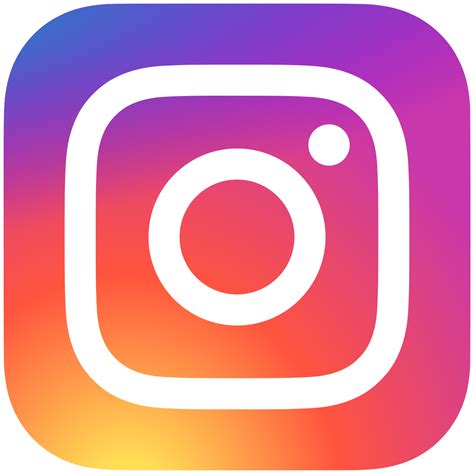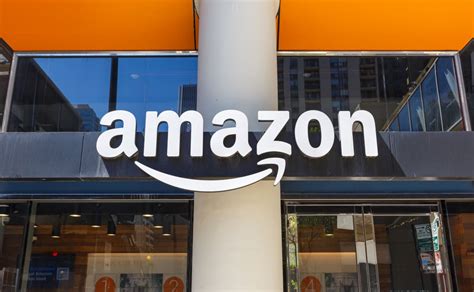The age-old debate: iPhone vs. Android. Which smartphone truly reigns supreme in 2024? It's a question that sparks passionate arguments and divides tech enthusiasts. The truth is, there's no single best answer. The ideal choice depends entirely on your individual needs, preferences, and priorities. Let's dive deep into a comprehensive comparison, exploring the key aspects of each platform to help you make an informed decision.
Operating System: The Core Difference
The fundamental difference lies in the operating system. iPhones run on iOS, a proprietary system developed exclusively by Apple. Android, on the other hand, is an open-source operating system developed by Google, powering a vast array of devices from various manufacturers like Samsung, Google, Xiaomi, and more. This difference in OS philosophy leads to distinct user experiences.
iOS: Simplicity, Consistency, and a Walled Garden
iOS is renowned for its user-friendly interface, intuitive navigation, and consistent experience across all Apple devices. It's designed for simplicity, making it easy for even novice users to pick up and use. Apple maintains tight control over its ecosystem, ensuring seamless integration between hardware and software. This walled garden approach results in excellent stability, security, and optimized performance. However, it also means less customization and flexibility compared to Android.
Android: Customization, Openness, and Choice
Android's open-source nature allows for extensive customization. Users can personalize almost every aspect of their device, from widgets and launchers to custom ROMs. The sheer variety of Android devices available is staggering, offering options for every budget and preference. This openness also means greater flexibility in terms of app sources and file management. However, the fragmented nature of the Android ecosystem can lead to inconsistencies in performance and updates, depending on the manufacturer.
Hardware: Design, Build Quality, and Innovation
Both Apple and Android manufacturers produce stunning hardware. Apple is known for its premium materials, sleek designs, and meticulous attention to detail. iPhones often boast exceptional build quality and a refined aesthetic. Android devices, particularly those from Samsung and Google, also offer impressive hardware, with innovative features like foldable screens and advanced camera systems. The choice here comes down to personal preference in terms of design and specific features.
Performance: Speed, Efficiency, and Optimization
In terms of raw processing power, both iPhones and high-end Android devices are incredibly capable. Apple's A-series chips are consistently among the fastest in the mobile industry, while flagship Android phones utilize powerful Snapdragon or Exynos processors. However, performance isn't just about raw power. iOS's tight integration with Apple's hardware allows for exceptional optimization, resulting in smooth and responsive performance even on devices with seemingly less impressive specs. Android performance can vary depending on the device and manufacturer, but top-tier Android phones offer blazing-fast speeds and seamless multitasking.
Camera: Image Quality, Features, and Versatility
Both iPhones and Android phones boast impressive camera systems. iPhones are known for their consistent image quality, natural color reproduction, and excellent video recording capabilities. Android phones, particularly those from Google and Samsung, often offer more advanced features like telephoto lenses, ultra-wide lenses, and sophisticated computational photography algorithms. The best camera depends on your specific needs and preferences. If you prioritize ease of use and consistent results, the iPhone is a great choice. If you want more versatility and advanced features, an Android phone might be a better fit.
Apps: Ecosystem, Availability, and Quality
Both the App Store and the Google Play Store offer millions of apps. While most popular apps are available on both platforms, there can be differences in app quality and availability. Apple's App Store is known for its stricter app review process, which generally results in higher-quality apps and fewer instances of malware. Android's Google Play Store has a more open approach, which can lead to a wider variety of apps but also a higher risk of encountering low-quality or malicious apps. However, Google has been actively working to improve the security and quality of the Play Store.
Price: Affordability, Value, and Options
iPhones generally command a higher price tag than Android phones. Apple's premium pricing reflects its focus on high-end materials, advanced technology, and a tightly controlled ecosystem. Android offers a much wider range of price points, from budget-friendly options to ultra-premium flagships. You can find an Android phone that fits almost any budget. However, it's important to remember that you often get what you pay for. Cheaper Android phones may compromise on features, performance, or build quality.
Security and Privacy: Protection, Transparency, and Control
Both Apple and Google have made significant strides in improving security and privacy on their respective platforms. Apple is known for its strong stance on user privacy, with features like App Tracking Transparency and Private Relay. Android has also introduced several privacy-focused features, such as Privacy Dashboard and permission controls. However, Android's open-source nature can make it more vulnerable to malware and security threats, particularly on older devices that no longer receive security updates. Ultimately, the level of security and privacy depends on the specific device and the user's own security practices.
Longevity and Updates: Support, Lifespan, and Future-Proofing
Apple typically provides longer software support for its iPhones than Android manufacturers do for their devices. iPhones often receive iOS updates for five years or more, ensuring that they remain secure and up-to-date with the latest features. Android update support can vary significantly depending on the manufacturer. Some manufacturers, like Google and Samsung, offer relatively long update cycles, while others may only provide updates for a year or two. This is an important consideration if you plan to keep your phone for several years.
Ecosystem Integration: Seamlessness, Compatibility, and Convenience
Apple's ecosystem is tightly integrated, allowing for seamless interaction between iPhones, iPads, Macs, Apple Watches, and other Apple devices. Features like Handoff, AirDrop, and Universal Clipboard make it easy to switch between devices and share information. Android's ecosystem is less tightly integrated, but Google offers a range of services and apps that work seamlessly across different Android devices and platforms. The choice here depends on whether you prefer the tight integration of Apple's ecosystem or the more open and flexible approach of Android.
Conclusion: Choosing the Right Smartphone for You
Ultimately, the best smartphone is the one that best meets your individual needs and preferences. If you value simplicity, consistency, security, and a tightly integrated ecosystem, the iPhone is an excellent choice. If you prioritize customization, openness, flexibility, and a wide range of options, Android is a better fit. Consider your budget, your usage habits, and your priorities when making your decision. Do your research, read reviews, and try out different devices before committing to a purchase.
Here are some popular apps available on both platforms:
1. WhatsApp Messenger
WhatsApp Messenger is a globally popular messaging app that allows users to send text messages, voice messages, make voice and video calls, and share images, documents, user locations, and other content. It's known for its end-to-end encryption, providing secure communication between users.
WhatsApp is a must-have for staying connected with friends and family around the world. Its simple interface and robust features make it a top choice for millions.
Download WhatsApp Messenger from Play StoreSearch WhatsApp Messenger on Play Store
2. Instagram
Instagram is a social media platform primarily focused on photo and video sharing. Users can post content to their profile, follow other users, and interact with posts through likes and comments. It also offers features like Stories, Reels, and IGTV for sharing short-form and long-form video content.

Instagram is the perfect platform for sharing your life through photos and videos. With its vast community and creative tools, it's a great way to connect with others and express yourself.
Download Instagram from Play StoreSearch Instagram on Play Store
3. TikTok
TikTok is a short-form video sharing platform that has taken the world by storm. Users can create and share videos up to 3 minutes long, often set to music or featuring creative effects. It's known for its algorithm that quickly surfaces trending content and personalized recommendations.
TikTok is the go-to app for short-form video entertainment. Its addictive feed and creative tools make it easy to discover new content and express your own creativity.
Download TikTok from Play StoreSearch TikTok on Play Store
4. Spotify
Spotify is a digital music, podcast, and video streaming service that gives you access to millions of songs and other content from artists all over the world. Basic functions such as playing music are totally free, but you can also choose to upgrade to Spotify Premium.
Spotify is the ultimate music streaming service. With its vast library, personalized playlists, and offline playback, it's the perfect companion for any music lover.
Download Spotify from Play StoreSearch Spotify on Play Store
5. YouTube
YouTube is a video-sharing platform where users can upload, view, rate, share, add to playlists, report, comment on videos, and subscribe to other users. It offers a wide variety of user-generated and corporate media videos.
YouTube is the world's largest video platform. With its endless content and diverse community, it's a great place to learn, be entertained, and connect with others.
Download YouTube from Play StoreSearch YouTube on Play Store
6. Google Maps
Google Maps is a web mapping platform and consumer application offered by Google. It offers satellite imagery, aerial photography, street maps, 360° interactive panoramic views of streets (Street View), real-time traffic conditions, and route planning for traveling by foot, car, bicycle and public transportation.
Google Maps is an essential navigation tool. With its accurate maps, real-time traffic updates, and offline capabilities, it's the perfect companion for any journey.
Download Google Maps from Play StoreSearch Google Maps on Play Store
7. Gmail
Gmail is a free email service provided by Google. Users can access Gmail on the web and through mobile apps. Gmail offers a large amount of storage space, powerful search capabilities, and integration with other Google services.
Gmail is a reliable and feature-rich email service. With its spam filtering, organization tools, and integration with other Google services, it's a great choice for personal and professional use.
Download Gmail from Play StoreSearch Gmail on Play Store
8. Facebook
Facebook is a social networking service where users can create a personal profile, add other users as friends, exchange messages, join common interest groups, and receive notifications when others update their profiles.
Facebook is the world's largest social network. With its vast community and diverse features, it's a great way to connect with friends, family, and people around the world.
Download Facebook from Play StoreSearch Facebook on Play Store
9. Uber
Uber is a ride-hailing service that allows users to request a ride from a driver through a mobile app. Uber operates in cities around the world and offers a convenient and reliable way to get around.
Uber is a convenient and reliable ride-hailing service. With its easy-to-use app and wide availability, it's a great way to get around town without having to worry about parking or public transportation.
Download Uber from Play StoreSearch Uber on Play Store
10. Amazon
Amazon is an e-commerce platform where users can buy and sell a wide variety of products. Amazon offers a vast selection of goods, competitive prices, and convenient shipping options.

Amazon is the world's largest online retailer. With its vast selection, competitive prices, and convenient shipping options, it's a great place to shop for almost anything.
Download Amazon from Play StoreSearch Amazon on Play Store


